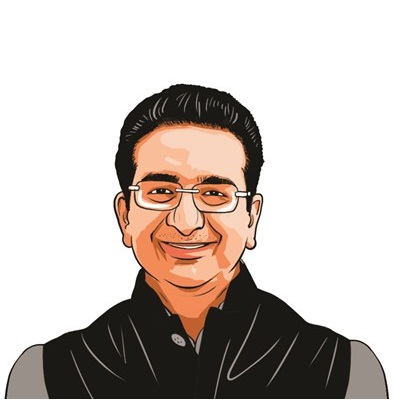Opinion Our Karwa Chauth love story: We fast together because love isn’t one-sided
Karwa Chauth has traditionally been seen as a wife’s devotion to her husband. But why should care be gendered?
 We respect our heritage, but we also believe that every tradition evolves with time.
We respect our heritage, but we also believe that every tradition evolves with time. There are few traditions that transcend time and continue to carry emotion, faith, and beauty through generations. Karwa Chauth is one such celebration. For most, it is a festival where a woman fasts for the long life of her husband. But for us, it became something more, a personal commitment, a shared ritual, a bond strengthened not by words but by action.
It all began 20 years ago. Pooja, my wife, told me she would be fasting for my long life, as was the tradition in our families. I smiled and said, “If the reason is my long life, shouldn’t I fast too? Because my life is incomplete without you.”
That one sentence changed everything. What was once a tradition became a partnership. Since that day, we both fast together — every Karwa Chauth, every year, without fail.
Our mornings begin early, before sunrise, with the sacred sargi, the pre-dawn meal. In our home, it’s shared with laughter, teasing, and sleepy smiles. The aroma of food mixes with the calm of dawn, and as we sip our tea together, there’s something comforting about the silence — the kind that doesn’t need words. It’s our ritual, our peace, our start.
As the day unfolds, the fast begins. The hours stretch, but so does our patience. We still follow the rigours of the day — meetings, work, responsibilities. Through the years, this fast has taught us both something beautiful — that love is most powerful when it’s equal.
Karwa Chauth has traditionally been seen as a wife’s devotion to her husband. But why should devotion be one-sided? Why should care be gendered? We learnt together that in marriage, equality doesn’t mean rejecting traditions, it means redefining them together.
We respect our heritage, but we also believe that every tradition evolves with time. The essence of Karwa Chauth — love, sacrifice, and faith — remains intact. But the way we live it now reflects the world we live in today, one where mutual respect and shared responsibility form the foundation of a strong relationship.
Evening comes, and with it, that familiar anticipation. The sun dips, the sky glows, and somewhere behind the clouds, the moon begins its quiet ascent. For 20 years, we have stood side by side, waiting for that same silver light. It has become a symbol, not just of tradition, but of endurance. As we finally break our fast together, sharing that first sip of water and that first bite of food, it feels like time stops for a moment, reminding us why we began this ritual in the first place.
It’s become our quiet love story — written in discipline, in companionship, and in shared silence. Because love isn’t always expressed in words; sometimes, it’s in the patience of waiting, the joy of sharing, and the pride of standing together.
In a world where relationships often rush through emotions, Karwa Chauth forces you to pause, to reflect, to value, to cherish. It reminds you that love isn’t about grand gestures, it’s about the everyday choice to care. It’s about showing up not just in moments of celebration, but in the quiet hours of endurance.
Here’s to love that evolves. To traditions that endure. And to equality that breathes within respect.
The writer is senior advocate and national spokesperson, BJP





